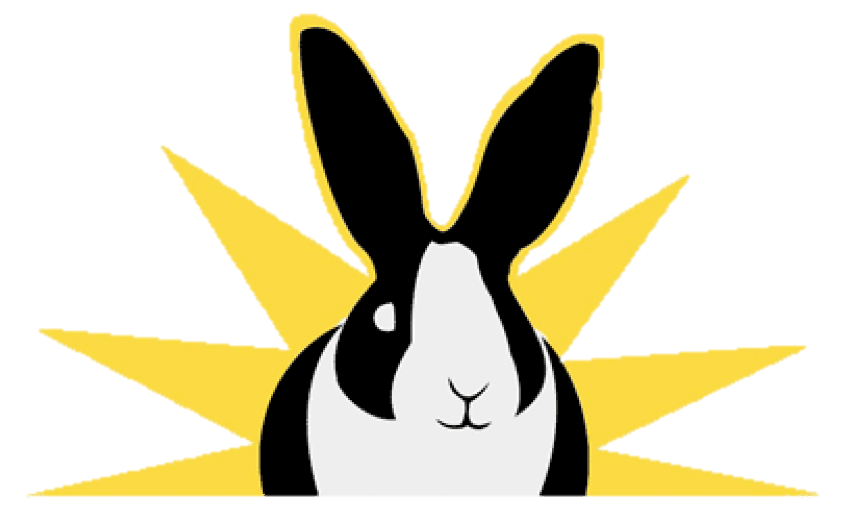Acupuncture for Rabbits
Please remember that all information on this site is not intended to diagnose or treat your pet. Information presented here is for educational purposes only and not to substitute for a veterinary consultation
Thank you to Pranjli Pandya who volunteered to write this article for us!
Acupuncture, originating from Traditional Chinese Medicine (TCM), has been increasingly utilized in treating various ailments in rabbits. It operates on the principle of restoring the body's energy balance by inserting fine needles into specific points where nerves and blood vessels converge. These acupuncture points correlate with certain body parts or organs, and their stimulation can elicit healing responses like nerve stimulation, enhanced blood circulation, muscle spasm relief, and hormone release, including endorphins and cortisol.
In rabbits, acupuncture is found beneficial for conditions such as Torticollis (head tilt), osteoarthritis pain, gastrointestinal slowdown (ileus), and heart, liver, and kidney failures. The effectiveness of this treatment can vary based on the veterinarian's expertise, the specific condition, and the frequency of the treatments. Generally, needles are placed for 15-20 minutes, with the procedure being largely painless. Improvements can be observed after one session, but multiple treatments are often required for significant results. For instance, treating Torticollis typically needs at least eight sessions.
Acupuncture in rabbits can be integrated with Western medicine and other alternative therapies. However, due to anatomical differences and potential risks, only a trained veterinarian familiar with rabbit anatomy should perform this procedure. This ensures proper understanding of the interactions between different treatments and accurate interpretation of the rabbit's response. Techniques like dry needle, electroacupuncture, and aquapuncture are commonly used. Additionally, chiropractic adjustments can complement acupuncture in recovery. In most states, only licensed veterinarians are permitted to perform acupuncture, considered a surgical procedure, on rabbits.
The International Veterinary Acupuncture Society, established in 1974, trains and certifies veterinarians in acupuncture, requiring a rigorous examination and case report completion. Recently, the FDA approved acupuncture as a primary therapy in certain human conditions, reflecting its growing acceptance in Western medicine. Consequently, demand for similar treatments in pets, including rabbits, has risen.
The exact mechanism of acupuncture remains not fully understood, but it's believed to involve multiple processes, such as nerve and blood vessel involvement, hormonal responses, and local tissue reactions. In rabbits, acupuncture has demonstrated the ability to release endorphins and neuropeptides in the cerebrospinal fluid, aiding in pain relief. Rabbits, considered to have high energy (Yang in TCM), respond well to fewer needles and shorter treatments.
Acupuncture has been employed to treat a wide range of rabbit ailments like kidney disease, paralysis, urinary incontinence, cancer side effects, and nasal diseases. While it's not universally effective and cannot reverse tissue death, it has shown promising results in many cases. Treatments have led to improvements in conditions like severe head tilt and kidney disease symptoms, although they are not cures. Maintenance therapy is often needed to sustain improvements, particularly in chronic conditions.
Overall, acupuncture, as part of TCM, offers a holistic approach to treating rabbit diseases. It aims to restore balance in the body, enhancing weak areas and calming excesses, and can be used alongside Western medicine for a comprehensive treatment plan with minimal negative effects.
Read more:
https://houserabbit.org/health/acupuncture-for-rabbits/
Have you tried acupuncture for your pet rabbit? Please send us your story and we will include it to help other bunnies and their people!

